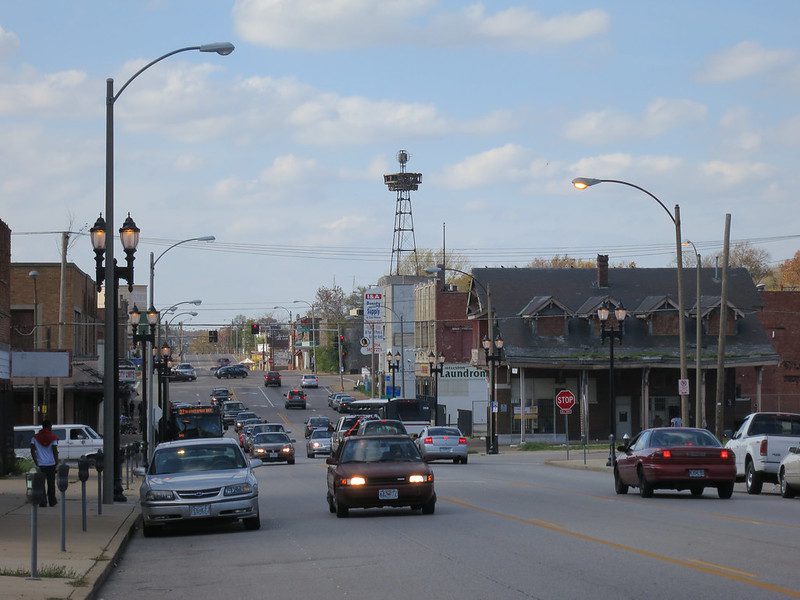Local Experience on the Issues
Deep local knowledge of how national issues affect citizens is one advantage community organizations have that Washington advocacy groups lack. Local campaigns provide issue expertise and credibility. The Gamaliel Foundation’s St. Louis area affiliates know intimately how sprawl and congestion-producing highways deprive mass transit of funding. They fought local highway expansion and campaigned to maintain roads and improve safety. Also, members know the need not for McJobs, but skilled jobs with benefits. This deep local experience led Gamaliel and allies to advocate for features in the SAFETY-LU (the 2005 federal transportation reauthorization bill) that authorized 30 percent of jobs funding for local low-income, minority, and women workers. “The only reason we would do a national campaign is if we have good capacity of local groups working on that issue,” explains Gamaliel national policy director Laura Barrett.
“Transportation is important in the regional equity work, which we have a lot of experience working on.” Gamaliel’s metro St. Louis groups now lead the national Transportation Equity Network (TEN).
The PICO National Network’s first fully national campaign seeks health care reform with a high affordability standard. PICO has wide experience in health campaigns. In 2000, in partnership with a labor think tank, San Jose PACT, a PICO local, won a set of programs guaranteeing health care for all children in Santa Clara County. Other PICO locals replicated the tactic, which used state tobacco settlement funds. PICO California, with 19 affiliates, began to move on health care issues in Sacramento when it was clear that local solutions required state funding and programs. Only when California’s federal S-CHIP funding for children’s health was in jeopardy did PICO launch a national campaign to fully fund S-CHIP. One PICO staffer explained, “We would have never worked on kids’ health care if we hadn’t done the Santa Clara County campaign.” S-CHIP languished during the Bush administration, but was one of the first bills President Obama signed. At the signing, PICO’s leadership was recognized: grassroots leaders were seated with Michelle Obama, and PICO pastors and staff were present. Local knowledge of needs, desirable program features, and experience with opponents gives FBCOs issue expertise and powerful personal narratives to use in national venues.




Comments